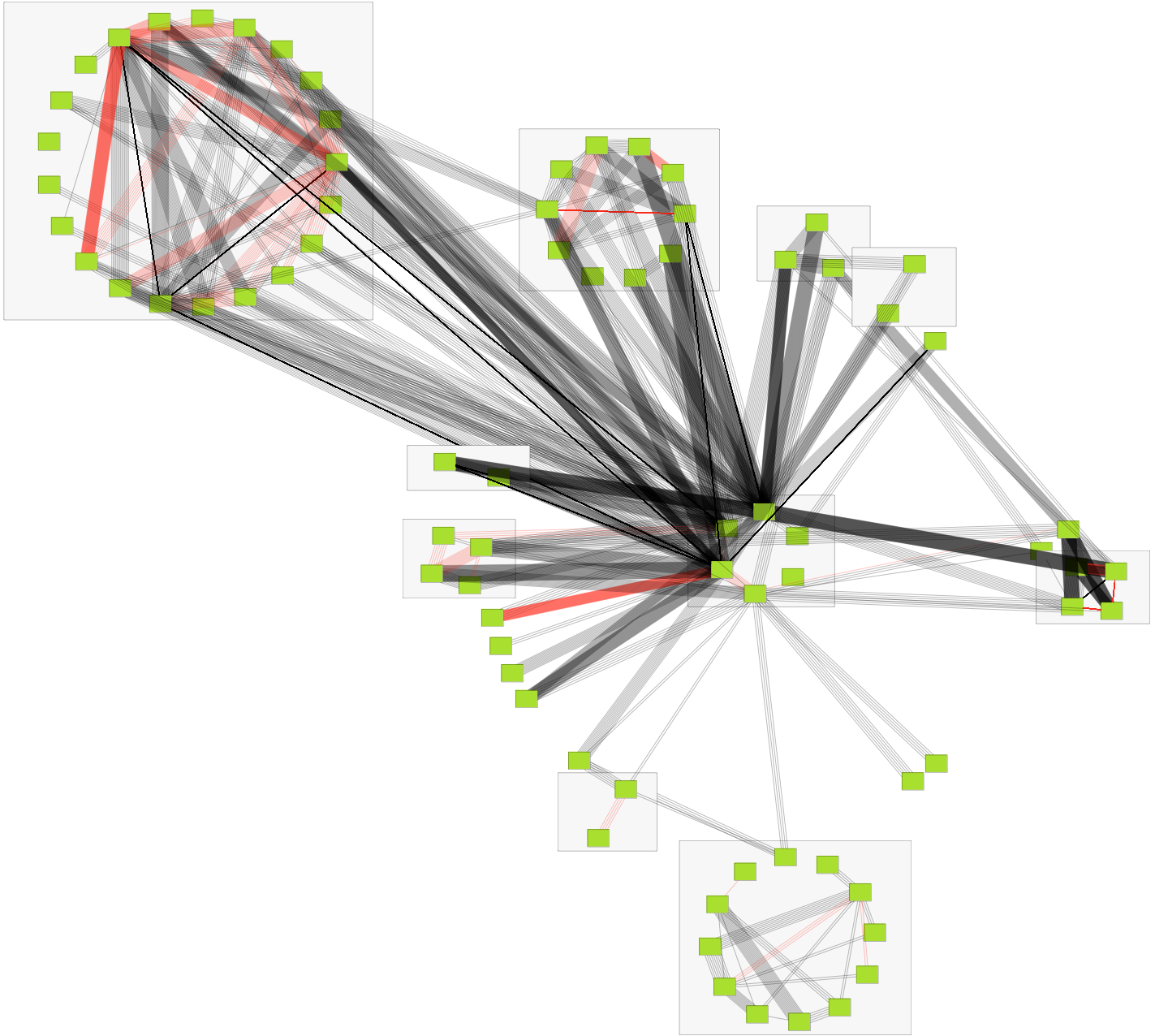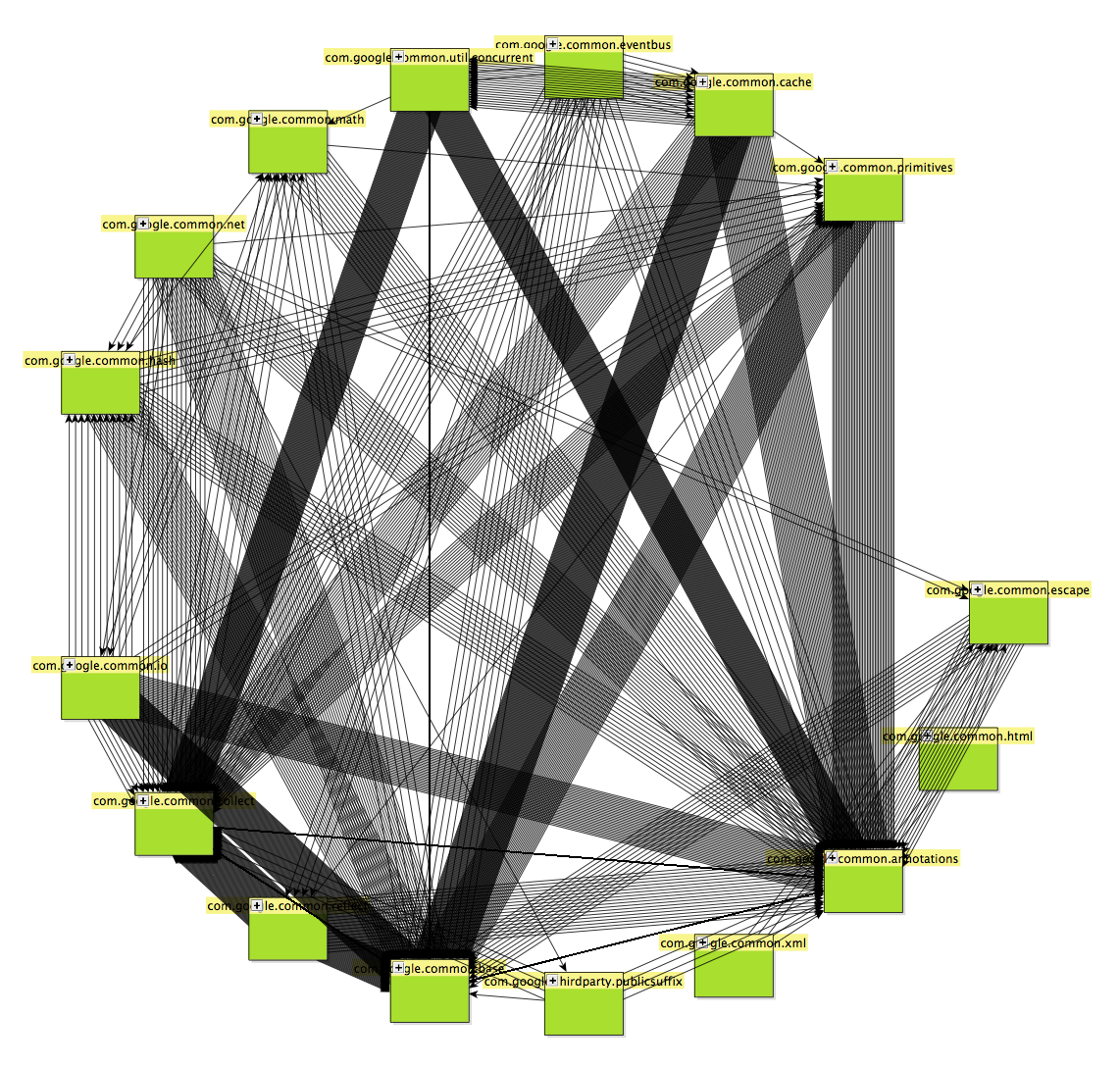Play Services 5.0 Is A Monolith Abomination
03 July 2014
Guava is a monolithic library, but that’s not necessarily a bad thing. Nobody thinks twice when bundling it for the JVM. In the world of Android the mention of Guava has a bit of a negative stigma due to the dex file format’s method limit and a concern about bloating APK size. The latter is no longer a valid argument. The dex method limit is a hard 64k limit to which Guava contributes just over 14k methods. 20% of this hard limit vanishes when you include Guava.
Sounds scary, right? It isn’t.
Google Play Services 5.0 which just launched contributes over twenty thousand methods to your app. 20k+. One third of the limit! Now that is scary.
The Play Services library includes proprietary functionality built on the normal Android APIs and a separate APK downloaded on all devices with the Play Store. Some of the services it provides are invaluable. Like Guava it is also a monolothic library but it is a bad thing in this case.
A lot of really cool functionality is being put in Play Services. You’ll have a hard time making a compelling app that lives in the Google Play ecosystem without it. You should want to put it in your applications and not have to worry about the overhead it brings.
Most of the library’s offerings are very disparate, having only the fact that they’re by Google as a common thread. This screams for small, modular artifacts which can be composed!
Google, it’s time to unbundle. All the cool kids are doing it. (Spoiler alert: it happened)
At worst, we specify a few dependencies manually:
dependencies {
compile 'com.google.android.gms:play-services-ads:5.0.+'
compile 'com.google.android.gms:play-services-analytics:5.0.+'
compile 'com.google.android.gms:play-services-games:5.0.+'
}
Best case would be a plugin that provided a clear DSL to what you were getting and offered easier configuration of the various components.
apply plugin: 'com.google.playservices'
playServices {
version '5.0.+'
components 'ads', 'analytics', 'games'
}
(You can even still provide the “fat” jar in both the dependency management world and the people who like manual dependency management.)
ProGuard is not the answer. Yes, for release builds it’s nice to strip out any methods which are not being used. However, this is not justification for having large chunks of unused code as dependencies. Besides, if you read my post on a simulator you know that we deserve a faster development build pipeline which removes steps, not adds them.
It’s not going to be a walk in the park but the packages inside Play Services are surprisingly well-configured to partitioning:
(Top-left: Games, top-center: Drive, middle-left: Plus, middle: common, middle-right: Maps, bottom: Ads)
Here’s Guava for comparison which has less clear partition lines:
Here’s how the method counts were determined:
$ curl 'http://search.maven.org/remotecontent?filepath=com/google/guava/guava/17.0/guava-17.0.jar' > guava.jar
$ ~/android-sdk/build-tools/20.0.0/dx --dex --output guava.dex guava.jar
$ dex-method-count guava.dex
14824
$ cp ~/android-sdk/extras/google/m2repository/com/google/android/gms/play-services/5.0.77/play-services-5.0.77.aar .
$ unzip play-services-5.0.77.aar
$ ~/android-sdk/build-tools/20.0.0/dx --dex --output play-services.dex classes.jar
$ dex-method-count play-services.dex
20298
And the full by-package breakdown of Play Services:
$ dex-method-count-by-package play-services.dex
20298 com
20298 com.google
207 com.google.ads
169 com.google.ads.mediation
73 com.google.ads.mediation.admob
62 com.google.ads.mediation.customevent
20188 com.google.android
20188 com.google.android.gms
2 com.google.android.gms.actions
480 com.google.android.gms.ads
135 com.google.android.gms.ads.doubleclick
25 com.google.android.gms.ads.identifier
88 com.google.android.gms.ads.mediation
4 com.google.android.gms.ads.mediation.admob
73 com.google.android.gms.ads.mediation.customevent
26 com.google.android.gms.ads.purchase
118 com.google.android.gms.ads.search
866 com.google.android.gms.analytics
52 com.google.android.gms.analytics.ecommerce
10 com.google.android.gms.appindexing
151 com.google.android.gms.appstate
80 com.google.android.gms.auth
644 com.google.android.gms.cast
1026 com.google.android.gms.common
12 com.google.android.gms.common.annotation
382 com.google.android.gms.common.api
235 com.google.android.gms.common.data
202 com.google.android.gms.common.images
126 com.google.android.gms.common.internal
126 com.google.android.gms.common.internal.safeparcel
1940 com.google.android.gms.drive
87 com.google.android.gms.drive.events
897 com.google.android.gms.drive.internal
241 com.google.android.gms.drive.metadata
202 com.google.android.gms.drive.metadata.internal
205 com.google.android.gms.drive.query
151 com.google.android.gms.drive.query.internal
451 com.google.android.gms.drive.realtime
451 com.google.android.gms.drive.realtime.internal
123 com.google.android.gms.drive.realtime.internal.event
38 com.google.android.gms.drive.widget
332 com.google.android.gms.dynamic
4534 com.google.android.gms.games
73 com.google.android.gms.games.achievement
113 com.google.android.gms.games.event
2956 com.google.android.gms.games.internal
858 com.google.android.gms.games.internal.api
43 com.google.android.gms.games.internal.constants
8 com.google.android.gms.games.internal.data
31 com.google.android.gms.games.internal.events
9 com.google.android.gms.games.internal.experience
215 com.google.android.gms.games.internal.game
56 com.google.android.gms.games.internal.multiplayer
23 com.google.android.gms.games.internal.notification
80 com.google.android.gms.games.internal.player
86 com.google.android.gms.games.internal.request
256 com.google.android.gms.games.leaderboard
640 com.google.android.gms.games.multiplayer
239 com.google.android.gms.games.multiplayer.realtime
256 com.google.android.gms.games.multiplayer.turnbased
213 com.google.android.gms.games.quest
150 com.google.android.gms.games.request
210 com.google.android.gms.games.snapshot
47 com.google.android.gms.gcm
111 com.google.android.gms.identity
111 com.google.android.gms.identity.intents
62 com.google.android.gms.identity.intents.model
5760 com.google.android.gms.internal
295 com.google.android.gms.location
2342 com.google.android.gms.maps
804 com.google.android.gms.maps.internal
1068 com.google.android.gms.maps.model
483 com.google.android.gms.maps.model.internal
14 com.google.android.gms.panorama
902 com.google.android.gms.plus
352 com.google.android.gms.plus.internal
316 com.google.android.gms.plus.model
192 com.google.android.gms.plus.model.moments
126 com.google.android.gms.plus.model.people
33 com.google.android.gms.security
1367 com.google.android.gms.tagmanager
867 com.google.android.gms.wallet
376 com.google.android.gms.wallet.fragment
143 com.google.android.gms.wallet.wobs
1011 com.google.android.gms.wearable
714 com.google.android.gms.wearable.internal
You can grab these two scripts from here: gist.github.com/JakeWharton/6002797
The dependency graphs were generated using degraph and yEd. Download the .graphml for Play Services and Guava.
— Jake Wharton

